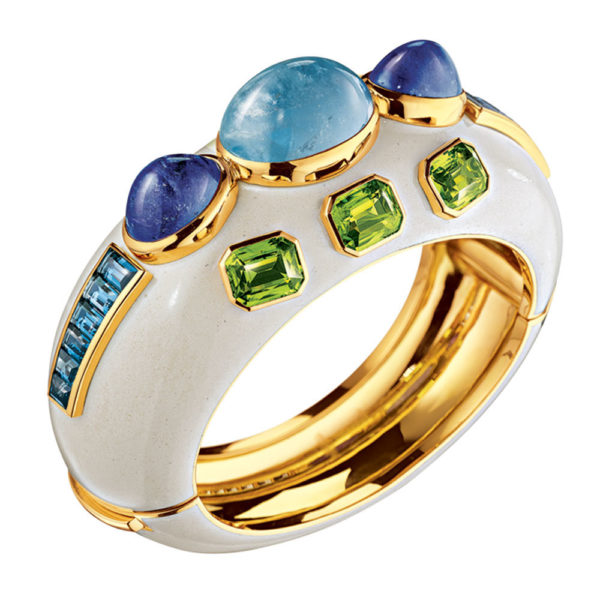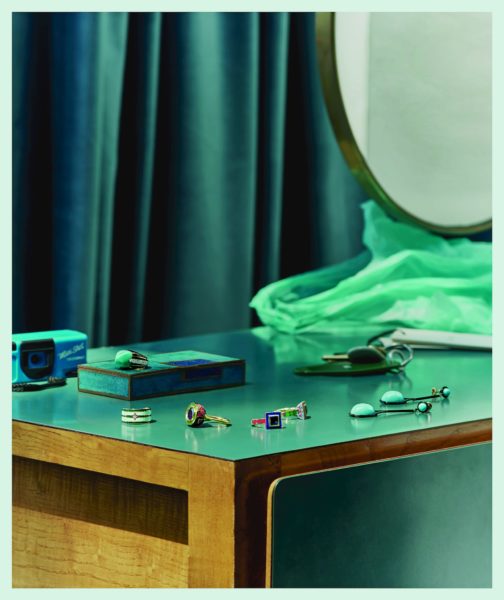From the ’30s to the ’60s, large-scale enamel works like signage were common, and so were the industrial facilities that produced them. Artists like Edward Winter and John Puskas made oversized 2D works on steel, and some innovative designers like John Keal added sheets of enameled copper and steel to wood tables.
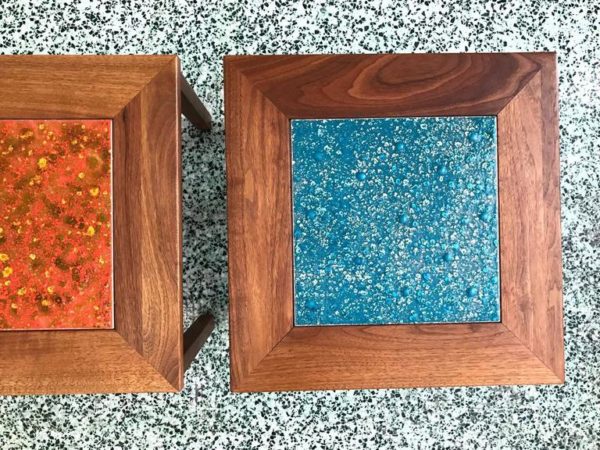
John Keal for Brown Saltman end tables, hardwood with enameled panels
But in the mid-20th-century, as CEA founder Judy Stone detailed in a post last year, the signage industry declined and enamel was marketed as a kitchen-table hobby. Enamel became almost entirely a small-scale art.
And yet the potential of enamel on a sculptural scale is unchanged. In recent years, a few designers have revived the medium, bringing a jolt of pure color to their forms.
Kelly Wearstler designed this custom bureau with an enameled front for the Manhattan apartment of Leslie Blodgett, founder and former CEO of the cosmetics company bareEscentuals.
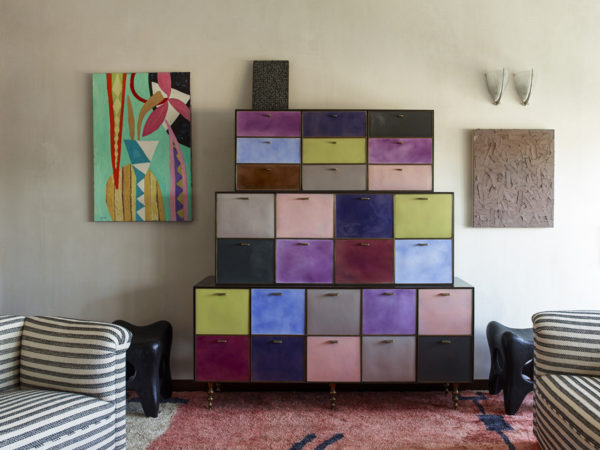
Custom cabinet by Kelly Wearstler in brass with enameled front
And the experimental furniture designer Kwang Ho Lee draws on the tradition of enameling in Korea, where he is based. He creates minimalist forms from thick-gauge sheet copper, and then douses them in color. When he first started showing his work, he says, even veteran artisans didn’t recognize the technique, so completely had it disappeared from the public eye.
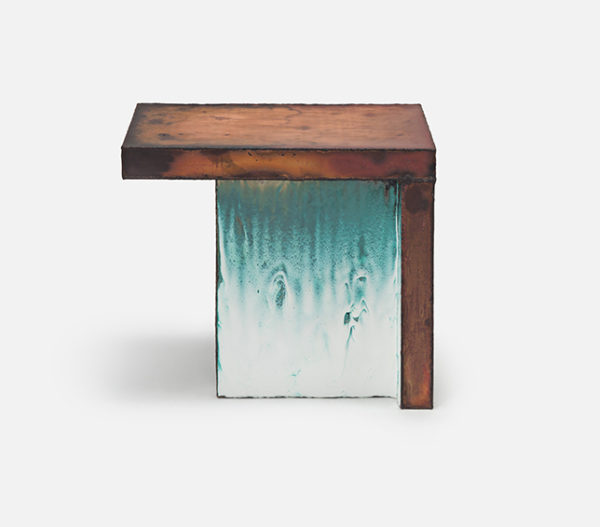
From the Skin series, small table by Kwang Ho Lee
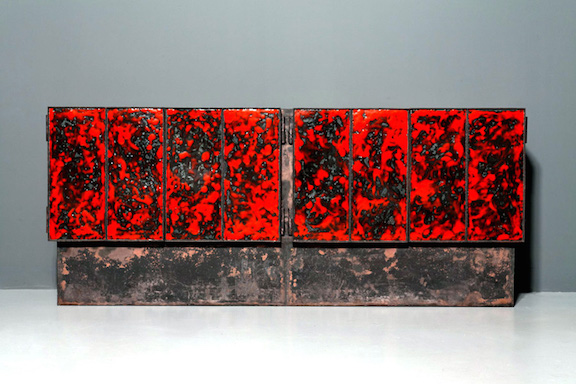
From the Skin series, enamel on copper, cabinet, by Kwang Ho Lee
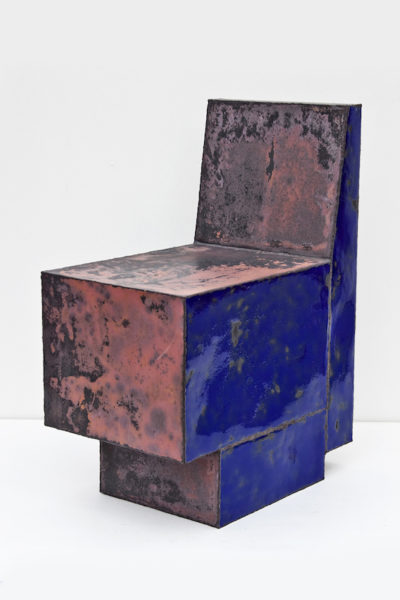
From the Skin series, enamel on copper, chair, by Kwang Ho Lee
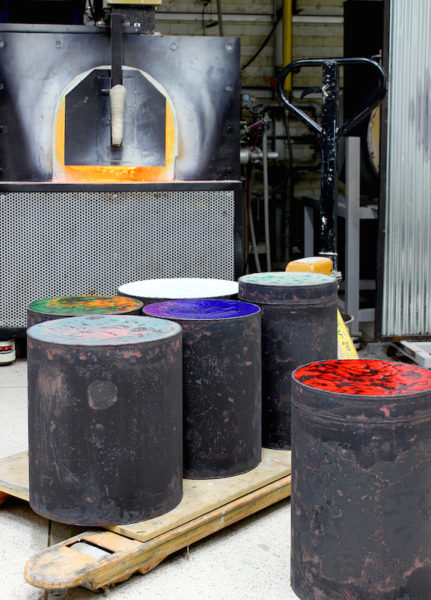
From the series Skin, enamel on copper, Kwang Ho Lee
Are you or anyone you know working large scale like this? Drop us a note on Facebook or in the comments below.
All pictures copyright Kwang Ho Lee. Find more of Lee’s work here:
on the web, http://www.kwangholee.com/
on instagram, @_kwangho_lee
